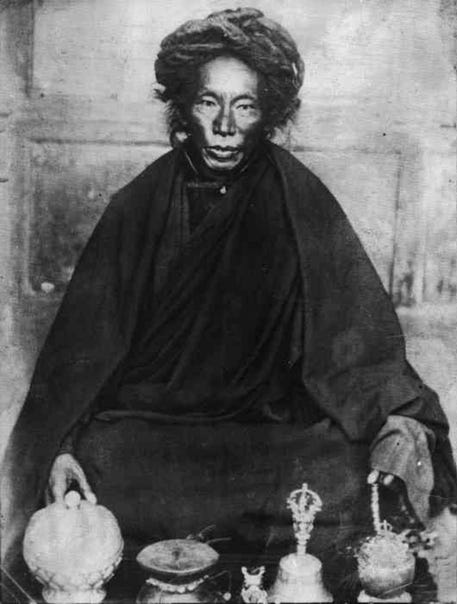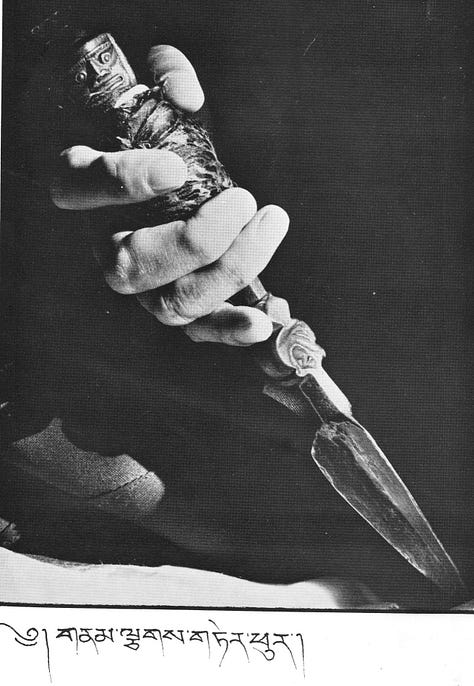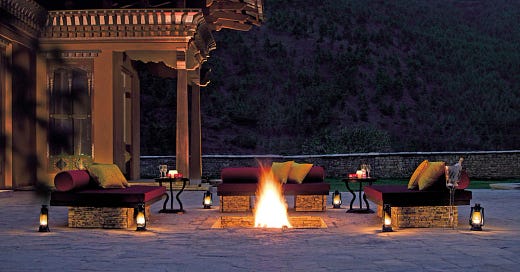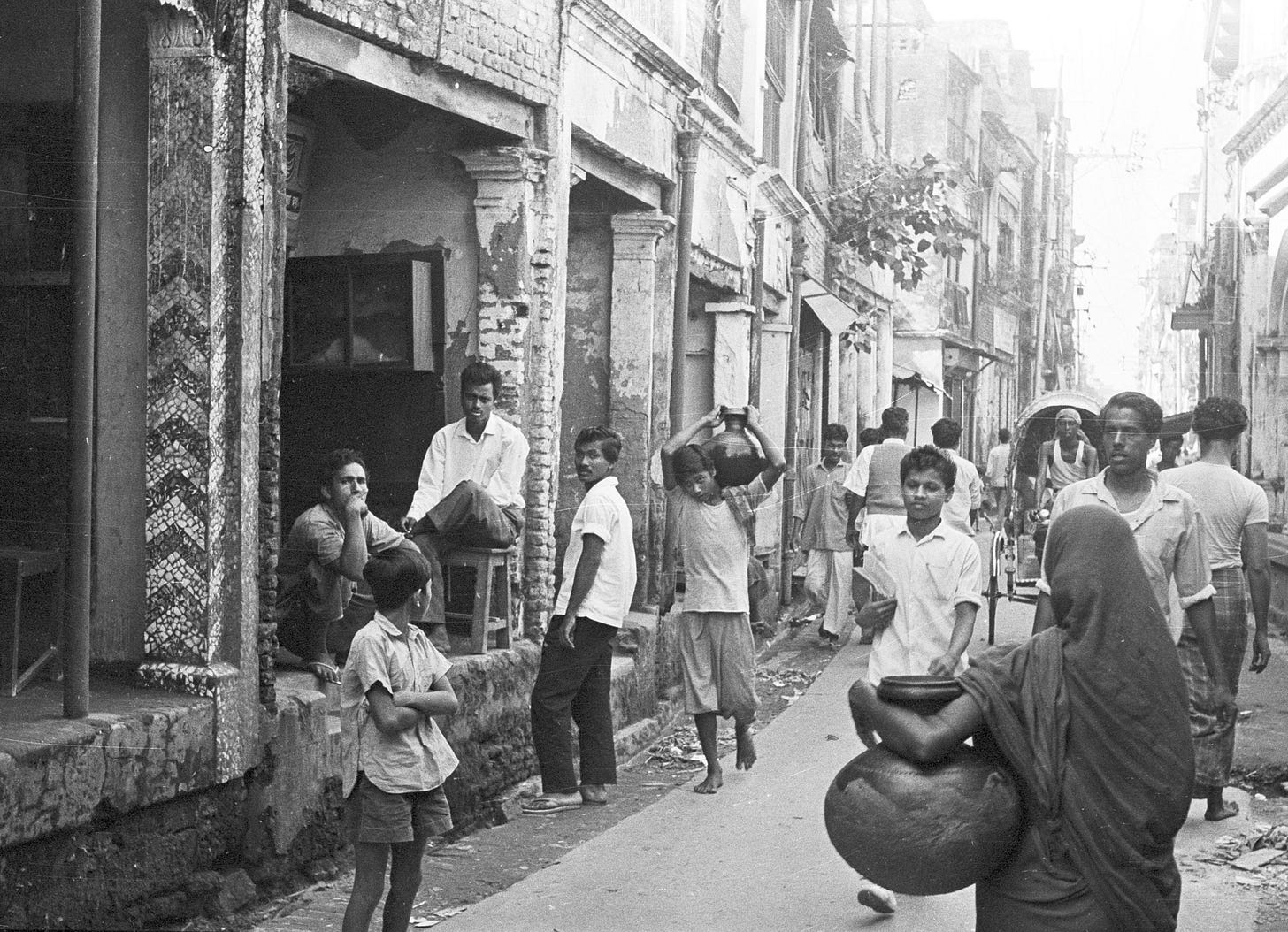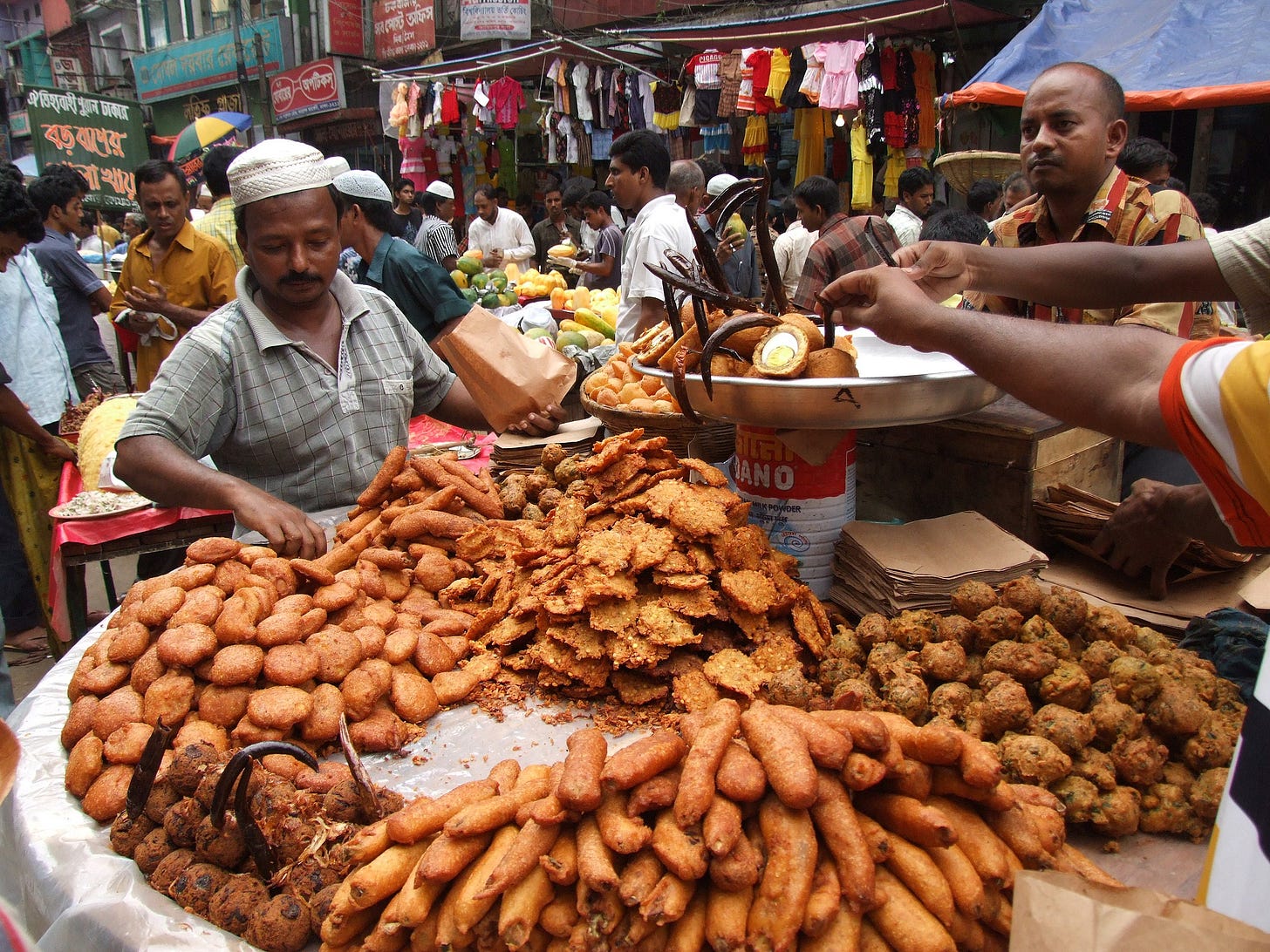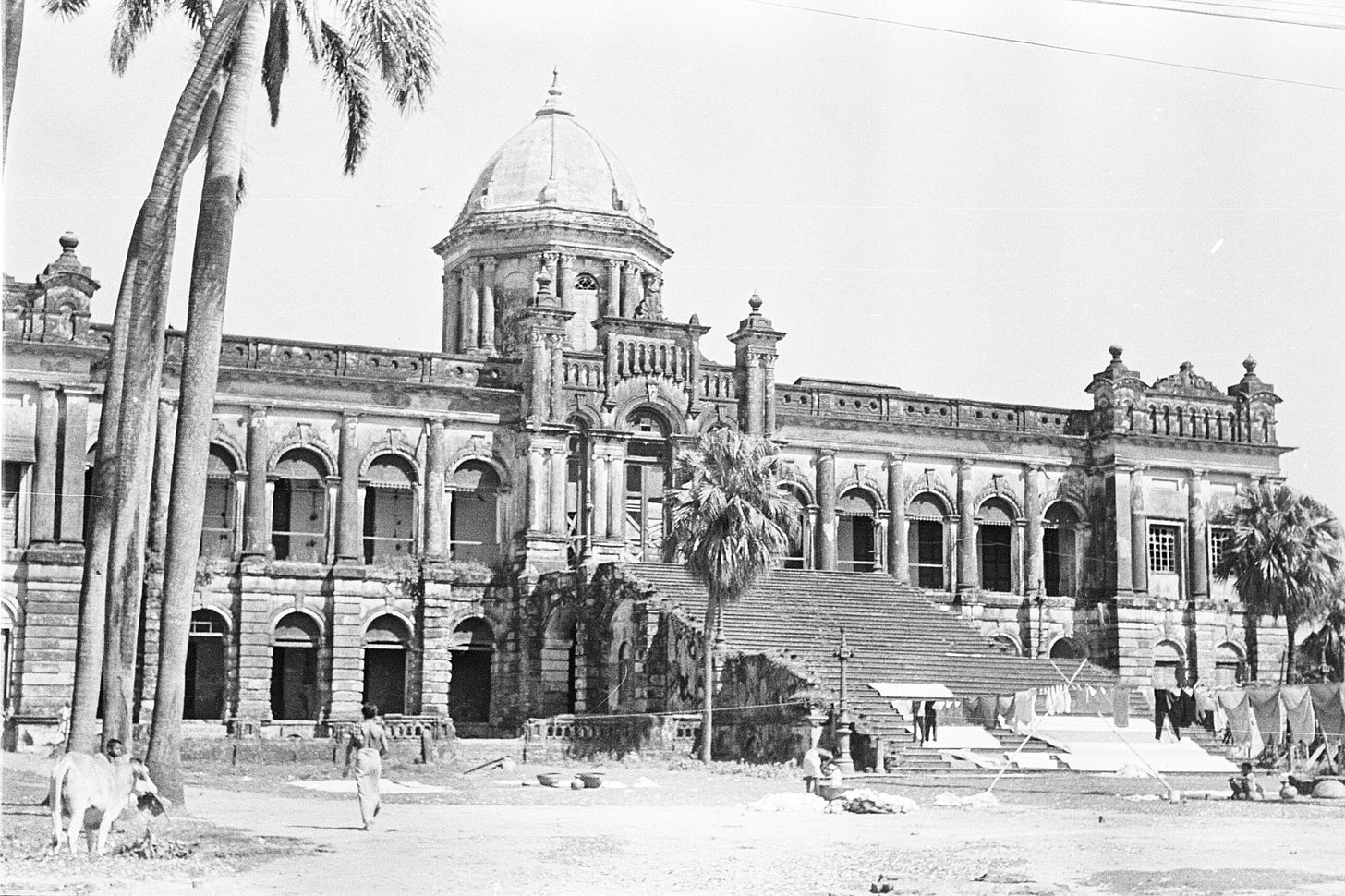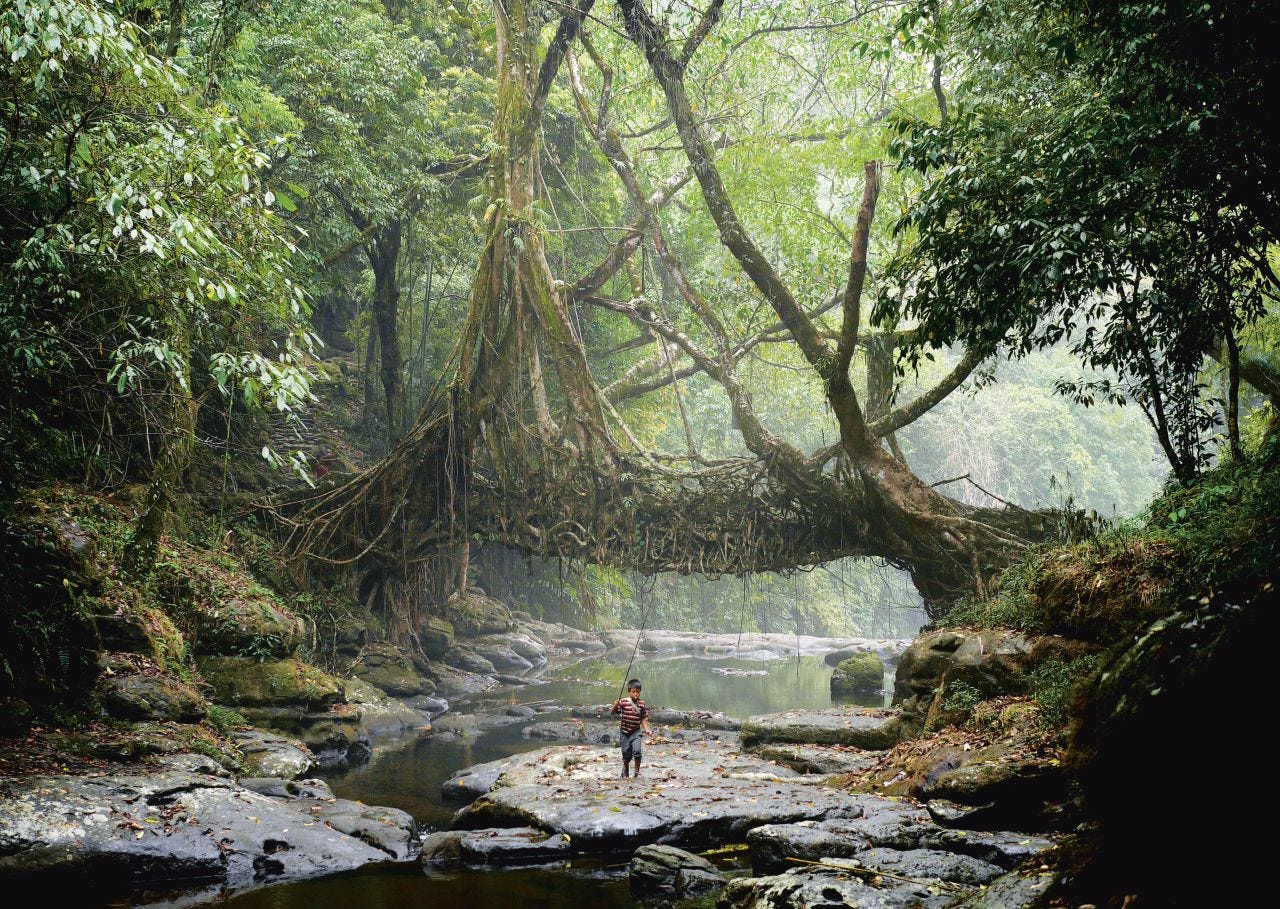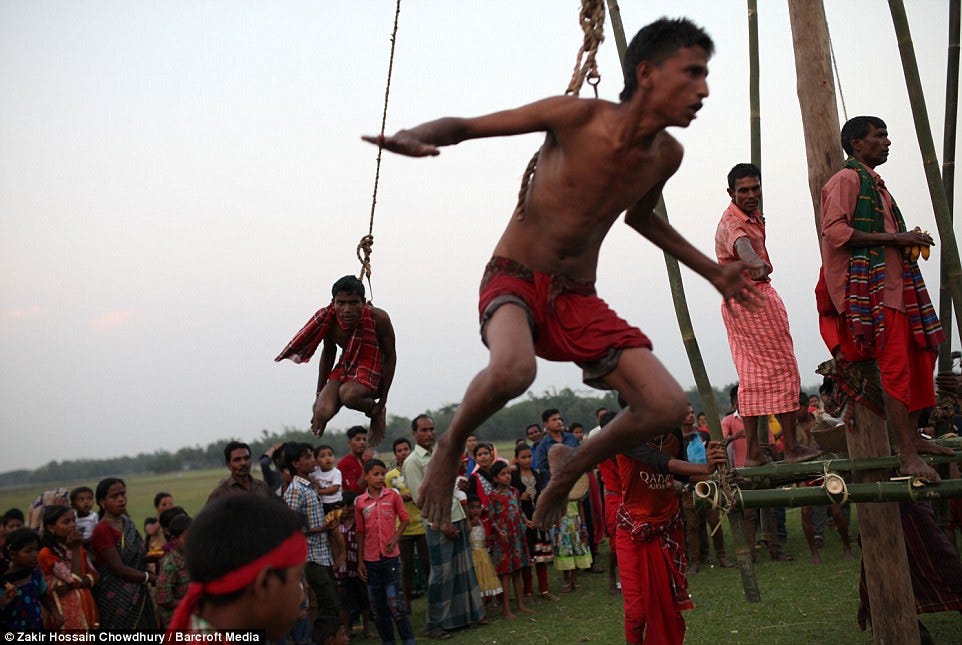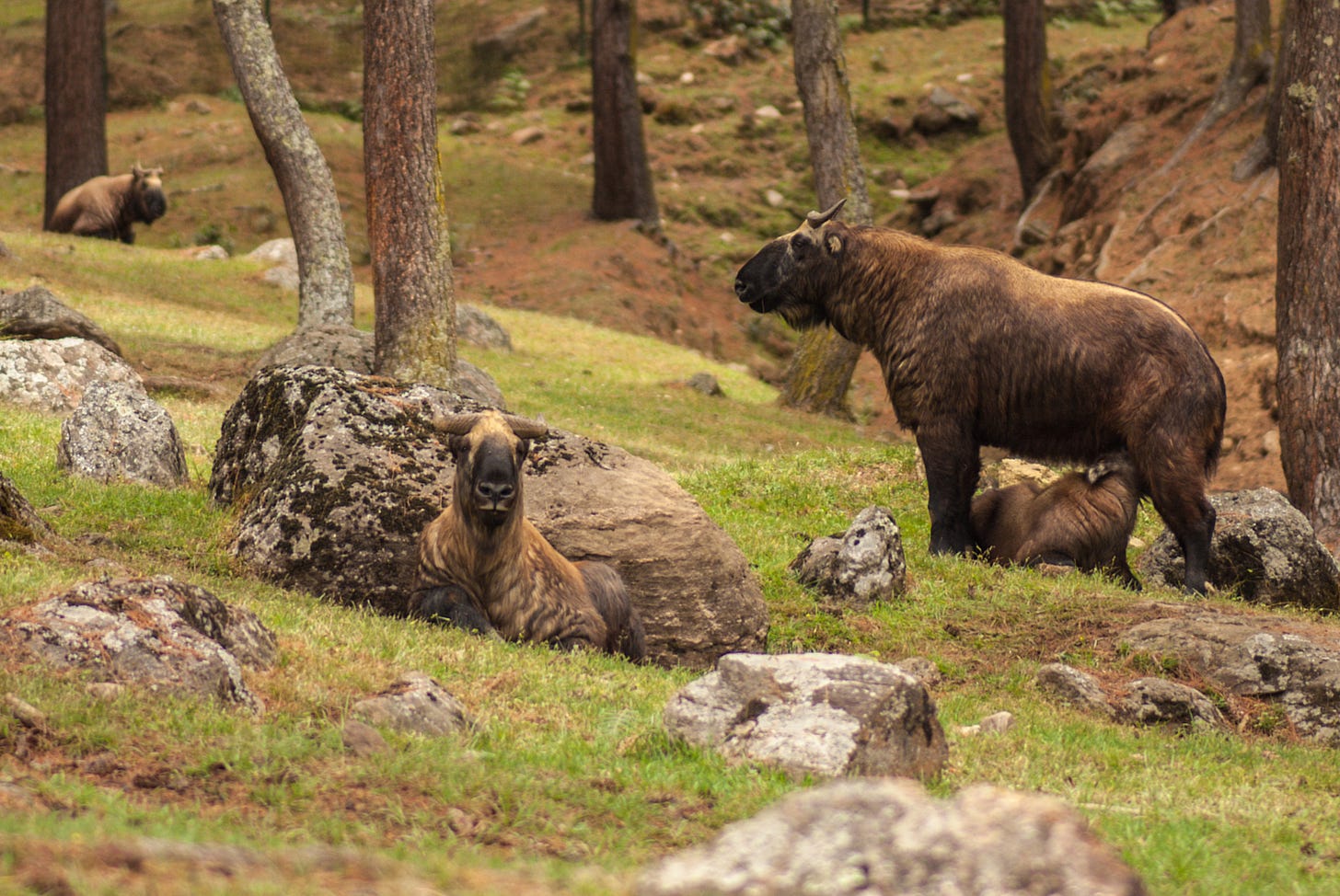An adventure for Calcutta PCs, working for the Great Detective Chatterjee.
“Someone is hiding the world from me. I am going to find it.”
Full text of the note left by Basanti Ganguli in her single room in Jagannath Hall, at the University of Dacca, before she disappeared. Satyendra Bose, head of the Physics Department, wants you to track her down.
One of his most promising young students. He’s been writing to Albert Einstein about the exciting work she’s doing in the field of X-ray crystallography.
Interested in everything. Biotechnology. Nuclear physics. The classification of subatomic particles.
Unified field theory. Believed she was on the verge of developing a single theoretical framework that could account for all of nature’s fundamental forces.
Worked on it for months. The final equation kept eluding her. The breakthrough wouldn’t come. Bose listened with sympathy to her complaints.
The second-hand book section of Dacca’s Chowkbazar market. Carpets spread out on the ground. Paperbacks stacked high.
Persian and Urdu poetry - Mirza Ghalib’s Diwan-e-Ghalib, Muhammad Iqbal’s Secrets Of The Self. Out-of-date medical textbooks.
American pulp novels. Tagore’s Home And The World. V. D. Savarkar’s Hindutva. Kipling’s Kim. Herman Hesse’s Siddhartha. Old atlases and naturalist studies with fold-out plates of brightly-coloured birds.
In the next street over huge tables are covered with samosas, biryani, fried jalebi, for Muslims breaking the Ramadan fast. Eggplant fried in mustard oil. A sprawling spice market. Donkeys bray.
Women in colourful saris throw sacks of cardamom and pepper down from third-floor balconies into workmen’s waiting hands. A muezzin calls to prayer from the rainbow-striped minaret of the Chawk Mosque.
Basanti came to Chowkbazar a lot. Spoke to the wrinkled old book merchants. Interested in Tibet.
Asked for books on Padmasambhava. Founder of Tibetan Buddhism. Creator of the beyuls - hidden paradise valleys in the Himalayas, protected by wrathful demons, where seekers of enlightenment can live in peace.
Excited to discover a rare English edition of Jatson Nyingpo’s Guidebook To The Hidden Land Of Pemako.
Translated and annotated by the surveyor Henry Morshead, who explored the gorges of the Yarlung Tsangpo river in eastern Tibet with the British spy Frederick Bailey in 1913. Morshead lives in Burma, and was shot dead by mystery assailants two months after the Guidebook’s publication.
Pemako is said to lie on the slopes of Namcha Barwa, a mountain in Assam’s far north-east. Extremely hard to get to. A refuge from the corrupted rule of the Kali Yuga.
The Yarlung Tsangpo flows out of Tibet, encircles Namcha Barwa and runs through the deepest canyons in the world. Leech-infested jungle foothills overrun by hostile tribes. Descends to the plains. Becomes the Brahmaputra. Flows into the Bengal Delta.
Tantric practices are thousands of times more effective in the perfect land of Pemako. Enlightenment comes easy. Those who make the climb, who vanquish Pemako’s guardians and convince the valley’s doors to open, will be rewarded with perfect knowledge of the world.
Ahsan Manzil. Formerly a palace of the Nawabs of Dacca. Bright pink. Near the docks.
Now a slum, overrun with squatters - washing strung between the palm trees, cows grazing on the lawn. Kids fighting in the music room, over the miraculously intact grand piano. Families cooking dinner on the ballroom floor.
One of the book merchants, a mild opium addict, directed Basanti here. To recruit Kunzang - Tibetan tertön and master of Chöd.
Padmasambhava hid religious texts in secret grottoes round the world. To be rediscovered by tertöns at the proper moments. Any rock, tree or lake might conceal one. Kunzang - a squat little man, expelled from the Tiger’s Nest monastery in Bhutan for dabbling in forbidden arts - believes himself to be the greatest tertön ever.
Used the palace bedroom to hold ganachakra taboo orgies.
Drinking from skull cups. Having group sex with prostitutes. Playing his thigh-bone flute. Paying Hindus to eat beef, Muslims to eat pork, small boys to rob graves. Christians to remove their flesh with his kartika flaying knife, cook it in a frypan and devour it with wine.
Sold the best opium in Dacca.
Bored rich kids, local goondas, sailors from Amsterdam and Malacca show up at his parties. You might find one in progress - his sidekick and acolyte de Groot hosts them while he’s gone. Ritual taboo breaking cleanses the soul of attachments, forces you to realise demons are in the mind.
He agreed to help Basanti find Pemako. Thought it might be fun. Opportunity to prove his excellence to the world.
Pulled an ancient prophetic scroll out of a sewer drain. Fragment of the Akashic Records. Written in dakini script that only tertöns can read. Said it was concealed there by Padmasambhava centuries ago.
Instructions for Basanti. Told her where to go next.
Shillong. In the cloudy Khasi hills. Orchids. Gibbons. Clouded leopards. Fig-root bridges over rushing mountain streams.
Zeb Muhammad. Pathan.
Veteran of three decades’ hill war, tulwar at his side. Badly scarred. Now a butterfly keeper at the Wankhar Entomological Dome. Spends his free time meditating under a waterfall. Devout Muslim. Was once married - wife and sons all dead. Impossible to ambush - senses honed beyond belief.
Basanti asked him to join the expedition.
Needed his courage and tulwar to fight off angry hill tribes. Snow leopards. Something Kunzang’s scroll described as “the red ghost”. Told him she was convinced that the destiny of all humanity was at stake.
Zeb dreamt when he was young that he would one day topple a Satan Tower, and liberate humanity from the Devil’s schemes. Agreed to go. His boss, Dr. Wankupar Wankhar, and his friends in the local peace-keeping Gurkha regiment, tried and failed to convince him that his fighting days were done.
Wankhar knows where they’re going.
Pasighat, a frontier outpost where the plain meets the jungle. Established by the British to control the Ahbor tribes in the aftermath of a minor frontier skirmish.
The Charak Puja festival.
Devotees paint their faces, pierce their tongues with needles, run across hot coals. Leap from trees onto dry ground littered with nails and broken glass. Miraculously walk away.
A sandbank at the edge of the wide Brahmaputra, overlooked by green mountains, hosts the celebration. A tired British officer does his best to dissuade a frantic missionary from getting involved.
Ramji, a Gond tribesman, is wanted in Jharkhand by the British for chicken theft and putting an arrow through the right thigh of a tax collector. He came to Assam to work on the tea plantations. You can find him suspended from a rope, swinging through the air, hooks driven into his back.
He loves it. Been here all morning. Insists you have a go.
Basanti tried to recruit him - something about a prophecy - but he thought it was ridiculous. She wanted to go all the way up the river, to Namcha Barwa and the Tsangpo gorges. Unbelievably dangerous. Totally insane.
She still needed a guide. He recommended a friend.
Orange Bill. Mad British flower collector. Combed the hills for seven years in search of the rare “Queen Christina’s Flame” rhododendron. Perhaps the only man alive who could get her to Namcha Barwa. Though Ramji anticipates she’s already dead.
Leeches. Tigers. Waterfalls. Rhododendrons everywhere. Ahbor tribesmen with poisoned arrows. At each village you come to, the women offer you tea and promise you they’re not in that notorious Himalayan poisoning cult you’ve heard so much about.
The red ghost haunts the valleys.
A simocyon - a gigantic, playful, prehistoric cousin of the red panda. Adorable until it bites out your throat. You can hire porters in the villages - it picks them off one by one. Zeb lopped off a big chunk of its tail with his tulwar, so it’s not in the best mood. Follows you until you kill it - happy to flee and come back.
Images of gods flicker behind cascades. Rainbows sparkle in the mist. Sudden dumps of rain convert the ground to swamp. Himalayan pines. Tricky climbs up rocky cliff sides - perfect time for the red ghost to strike.
Poisonous snakes. Hundreds of fat orange leeches in your shoes, down your pants, underneath your shirt. Birthday-cake fungus in the trees - yellow on top, white on the bottom. Probably delicious but too high to reach.
Colder as you get higher. Crumbling stupas. Prayer flags strung between trees. Friendly lamas appearing out of nowhere, like it was a country garden. Snow-capped peaks. Blizzards. Increasingly deep gorges spanned by swaying bridges.
Takin gnu goats disembowelled, lying in your path. Huntsmen wait behind a rock to see who’ll come along. Footsteps vanish halfway across snowy fields - your porters say dakinis carry travellers off.
A gigantic waterfall. Cascading into the Brahmaputra from the flanks of Namcha Barwa. Glacier-fed.
No path to the top. You have to climb. Walls of wet slippery rock. Zeb’s crampon marks. The corpse of a fallen porter, lodged about halfway up. Dried yak meat, apricots and tins of sweetened black fish in his bag.
Pemako.
An idyllic valley. Crisp mountain air. Peasants farming by the river - strawberries and oranges, cherry trees and goats. Lush backyard gardens - it’s amazing how well everything grows.
Generous, contented folk, though not too bright. Will give you anything you ask for. Don’t have much. A little inbred - shuffling lazily around the property, smiling at bugs. Speak of the lamas in reverent tones.
You can’t leave the way you came. You just get lost in the mists - turned around, directed back into the valley. The peasants welcome you as if it’s the first time they’ve seen you.
A friendly lama appears. Invites you to the monastery.
High on Namcha Barwa’s side, overlooking the glacier at the valley’s head. Waterfalls creep around it. A steep winding path. Prayer wheels. Monks in the courtyard, meditating, practicing martial arts. Melting frozen sheets with concentrated body heat. Zeb, showing them knife tricks and learning their kung fu.
Basanti. An honoured guest.
The High Lama has instructed the monks to treat her with great compassion. She spends her days in the library - reading about vimana flying machines, the secrets of time travel, the five-finger death punch. Vedic-era Sanskrit manuscripts that describe the structure of the atom and techniques for generating infinite free energy - obvious once explained.
Orange Bill works in the garden. Kunzang, resentful, is locked in a cell. They won’t let him out until they’re persuaded he’ll stop bullying the villagers and molesting their goats.
The Satan Tower stands in the monastery’s inner sanctum.
A tall white cone with prismatic rays flashing from its pinnacle. A Bon devil worshipper inside, transmitting evil thoughts on occult frequencies across the globe. There are six more like it - scattered across Asia from Manchuria to Kurdistan.
They cloud the minds of the world’s greatest scientists. Making certain thoughts unthinkable, certain ideas impossible to comprehend. No unified field theory is possible so long as they’re active. All geniuses can feel this as an itch - a concept just out of reach.
This is for the world’s protection. The true nature of the universe is incredibly easy to grasp. Without the Satan Towers, we would have immediate access to the powers of gods. In under a year, humanity would end.
No-one is supposed to leave the valley once they know the truth.
The best way out is to climb the glacier. Get over the ridge and you can come down on the mountain’s other side. Ride the river down through the Tsangpo gorges - the most dangerous rapids in the world. Once they realise you’re gone, the monks will send dakinis - wrathful demonic nymphs with skull necklaces and too many arms - scuttling over the rock after you. Some of them can fly.
Zeb and Bill want to stay. Basanti wants to leave - and to destroy the Satan Tower first. Kunzang will help the monks catch you if you don’t get him out.
